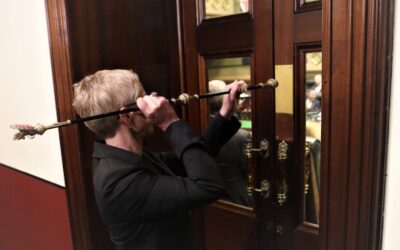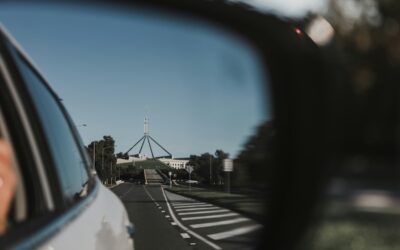Coles shareholders have backed the supermarket giant’s approach to salmon farming but not before executives caught an earful from activists defending an endangered prehistoric fish.
A Queensland teenager was among the conservationists who queried the company’s approach to sourcing salmon from Tasmania’s Macquarie Harbour at the grocery giant’s annual general meeting on Tuesday.
Coles leaders batted away questions on its fish supplies despite delivering a series of strong sales results as it gained ground on arch rival Woolworths.

Spencer Hitchen, 14, told executives and shareholders he could not comprehend how the adults could further threaten already-endangered species.
“Are you willing to knowingly extinct the Maugean skate and do you care about my generation’s future?” he asked.
The harbour is believed to be the only natural habitat left for the skate, a flat-bodied ray that dates back to the time of the dinosaurs.
Coles chairman Peter Allen said he was comfortable with what the science was telling them and what the firm was doing about the issue.
“We don’t want to be associated with the extinction of the Maugean skate,” he said.
Since 2019, Coles had engaged with stakeholders including university scientists, non-governmental organisations and the Tasmanian Environmental Protection Agency to understand the impact of salmon farming in Macquarie Harbour, Mr Allen said.
Activists say the fish farming there causes poor water quality and low oxygen levels, threatening the skate’s survival, although University of Tasmania scientists in February reported that its population had been improving in recent years.
Mr Allen said he visited the harbour in October with company chief executive Leah Weckert and they were encouraged by the actions taken by scientists and industry over the complex issue.

“Coles takes responsible sourcing seriously,” he said.
Just 12.5 per cent of Coles shares at Tuesday’s annual general meeting were cast in favour of a resolution backed by activists that asked Coles to align its seafood sourcing to a global best-practice standard.
That resolution was never officially put to the meeting as it was contingent on an amendment to the company’s constitution passing.
Coles’ board recommended a vote against the resolutions, saying they would duplicate work under way and potentially add costs without any clear environmental benefits.
The board also noted the resolutions had been backed by a group of shareholders who held only a tiny share of the company’s issued capital.
Shareholders at Woolworths’ annual general meeting also voted down similar resolutions in October, although they received more support with 34 per cent voting in favour of a farmed seafood reporting policy.
Coles turned a $1.1 billion profit in the past financial year, while its sales revenue grew twice as fast as that from its larger rival, Woolworths, in the first quarter of 2025/26.
The company’s shares were up marginally to $22.30 on Tuesday.
Australian Associated Press is the beating heart of Australian news. AAP is Australia’s only independent national newswire and has been delivering accurate, reliable and fast news content to the media industry, government and corporate sector for 85 years. We keep Australia informed.





